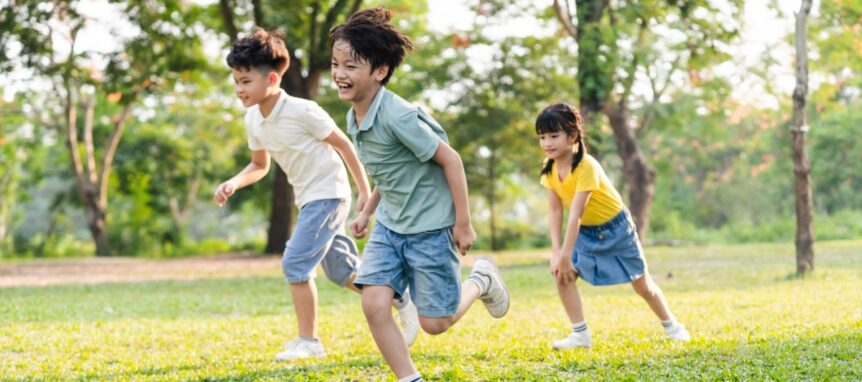As children grow older, their schedules fill up with academics, extracurriculars, and increased responsibilities. But one critical element of development often fades from focus after elementary school: play. Middle schoolers and even teens benefit immensely from unstructured play and outdoor recreation. Recess, or time dedicated to movement, exploration, and imagination, shouldn’t be left behind with early childhood. In fact, it’s more important than ever.
Play Is More Than Just a Break
For younger kids, recess is a daily part of school life, celebrated as a time to run, climb, and socialize. But as students advance through the school system, those minutes of play often disappear. The assumption is that older children no longer “need” play; but research consistently proves otherwise. Play supports mental health, boosts cognitive performance, and encourages healthy social interaction. Older children still experience stress, peer pressure, and academic challenges. Physical activity and open-ended play offer essential outlets for self-regulation, reflection, and connection.
Cognitive Benefits of Continued Play
Time outdoors and active movement stimulate the parts of the brain responsible for memory, attention, and executive functioning. As academic demands increase in the upper grades, so does the need for brain breaks. When kids return to the classroom after physical play, they often come back with renewed focus and the ability to process and retain new information more effectively. They become more capable problem-solvers, able to think creatively when approaching complex tasks or group projects. Even behavioral issues tend to decrease because children have had the opportunity to release pent-up energy and reset mentally. Play isn’t a distraction from academic success, it enhances it.
Emotional Growth and Stress Relief
Middle school and high school bring an entirely new set of emotional challenges. Adolescents face increased academic pressure, shifting social dynamics, and a growing desire for independence. Without healthy outlets, stress and anxiety can easily build up. Outdoor play gives children the chance to unwind and step away from these pressures. It allows them to express themselves freely and experience pure joy without judgment or competition. These playful moments help them manage their stress and build resilience, improving their emotional health in the long run. Something as simple as laughing with friends outdoors can make a significant difference in a child’s overall well-being.
Fostering Friendships Through Play
Social development doesn’t end after elementary school—it becomes even more complex. As children grow, relationships take on deeper meaning, and peer influence becomes stronger. Play creates a natural environment for building genuine friendships. When kids engage in group games, creative challenges, or outdoor adventures, they learn how to communicate, collaborate, and compromise. These shared experiences help them practice empathy and understand different perspectives. In addition, play gives older children opportunities to lead or support others, helping build confidence in their role within a group. The friendships formed through outdoor play are often more authentic and long-lasting than those built through online interactions alone.
Nature as the Ultimate Playground
The outdoors offers a setting full of variety, mystery, and endless possibilities. Unlike indoor environments or structured programs, nature encourages open exploration and imagination. When children are outside, they are more likely to challenge themselves physically, observe wildlife, and engage all their senses. Nature promotes mindfulness, helping kids slow down and become more aware of their surroundings. Programs like Camp Live Oak take advantage of these benefits by offering outdoor activities such as hiking, kayaking, and wildlife observation. These experiences help kids build practical skills while also developing confidence, independence, and a deeper appreciation for the natural world.
Reimagining Recess for Older Youth
Even if schools reduce or remove recess as children get older, other forms of play can and should take its place. Camps, after-school programs, outdoor clubs, and nature-based learning experiences help fill the gap by giving kids the freedom to move, imagine, and connect. Unstructured, tech-free time allows kids to recharge in ways that traditional classroom settings cannot. It offers a healthy balance and helps children avoid burnout from academic pressure or screen overuse. Older kids don’t need less play, they need more of the right kind of play: the kind that is meaningful, engaging, and developmentally supportive.
Rediscovering the Joy of Play
Older children still need the same things they did when they were younger: movement, connection, joy, and time outside. Play isn’t childish, it’s human. It boosts confidence, supports mental health, and strengthens relationships. When we allow older kids and teens the space to play freely, we help them grow into stronger, happier, and more resilient individuals.
At Camp Live Oak, we recognize that play is essential at every age. Our nature-based programs encourage creativity, teamwork, independence, and joy, without the pressure of grades or screens. To learn how Camp Live Oak keeps the power of play alive for kids and teens, visit our contact page and connect with us today.

